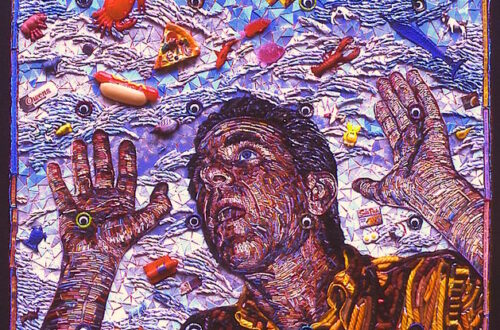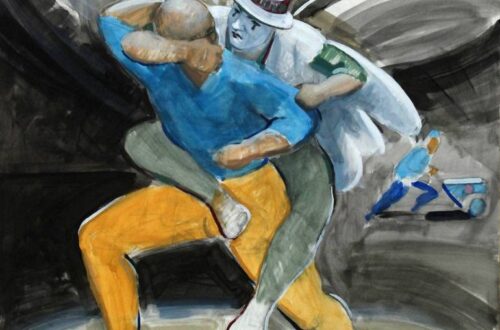-
A Snob in the UK
I’ve never been an anglophile and frankly always gone a little out of my way to make the point. When the opportunity to have dinner at the House of Lords with Lord Wei came up in our trip planning for London I was the first one to say “That’s not the kind of thing we want to do for dinner.” What’s the attraction of having dinner with someone just because they have a title? My assumption has always been titles have been handed out for the same reasons major donors to successful Presidential political campaigns are awarded positions as ambassadors. It’s patronage pure and simple. As well the word “peer”…
-
No Pith Helmets in Paris
I’ve just returned from ten days in Europe – London Oxford Paris and Prague. A small group from The Gathering (11 of us) went together. In the course of those ten days we made visits or heard presentations from 23 different ministries. Yes that is insane but you should have seen us high-fiving after the final presentation. For me 23 in ten days is a “personal best”…but that’s not a record I want to break. I took good notes and intend to write it up in segments for the blog and the Board of The Gathering. However this morning I wanted to focus on a theme that kept coming up consistently among the group. All of us have visited…
-
'Clearness Committee'
This afternoon I am meeting with a young man who is trying to figure out what to do with his life now that he has left his company. I have found most people in this situation go around and have conversations with individuals and then try to process everything they have heard in their own heads. It’s a pretty standard way of getting advice. If your primary doctor gives you a diagnosis you can go get a second opinion. If your insurance quote is too high you can call another agent. We tend to get advice and counsel that way. I’m not sure it is the most effective way of…
-
The Fabric of a Community
I live in a city of 100 000 people. When I moved here 27 years ago it was 75 000. Not much change in population but somewhere along the line we passed a tipping point that has affected once well established growth patterns management structures politics and a host of other things. The change is not merely incremental. Like many cities in the South we have learned to accommodate and manage our differences. We have a registered Democrat I think that covers us for political diversity. We have many brands of Protestant Christians large numbers of Catholics and a healthy Jewish community. Up until now our local “secular” community foundation…
-
A Civil Understanding
In a recent column titled “Who will bat against ‘Alibi’ Obama” George Will wrote “Announcing his candidacy near the Statue of Liberty where Ronald Reagan began his 1980 post-convention campaign Huntsman promised “civility” because “I don’t think you need to run down someone’s reputation” when running for president. Actually you do.” I doubt George was advocating vicious personal attacks but I do think he was saying we need to define “civil” as something other than bland. I only mention this because I have had two conversations today with organizations in Washington who are both working to bring “civility” back into politics. Is that like bringing romance back into human trafficking? …
-
Idolatry of Philanthropy
In 1985 when five of us met for the first time to talk about giving we had two issues we wanted to discuss. In our experience we had identified two ditches along the road we wanted to avoid if we were going to stay in this work for a long time. The first was the tendency to become cynical and disillusioned. People receiving grants did not always do what they said they were going to do. We each had some stories to share that were both sad and funny. However there were enough instances of people either misrepresenting their work or being outright fraudulent to make us concerned about our ability…
-
Steve Jobs – Only an Amateur
In all of the news stories being written about the death of Steve Jobs I have yet to see one that begins with “Billionaire Steve Jobs.” When Warren Buffett and Bill Gates or some Saudi sheikh die I suspect that “billionaire” will be the leading word in the obituary. That word defines them in our minds; it was a by-product for Steve Jobs – not what defined his life in his eyes or ours. While he was #39 on the Forbes list of billionaires this year (a move up from #162 in 2010) that was not at all how we thought of him. The greatest part of his financial wealth…
-
What do Muslims Believe
1.5 billion believers and 23% of the world’s population. After Christianity, it is the second largest religion in the world. Again, as we go through you can think about the differences and similarities with Judaism from last week and our own beliefs as Christians. A. Muhammad was born in Mecca, Arabia in 570 AD. He was an orphan at 6 years old and was raised by his uncle who traced his line back to Ishmael – the son of Abraham and Hagar. He became a merchant/trader and married a successful businesswoman when he was in his 20’s. At 40 he went to the desert outside Mecca (Mt. Hira) and received…
-
Those Who Have Eyes To See
For much of my life I had 20/20 vision. That changed in my 40’s and now I have trifocals for reading seeing close and seeing distance. I like them…but I have to get them adjusted every couple of years as I grow older. Some people have glasses for most of their lives. Come to think of it all of us have glasses all of our lives because we “see” things through lenses whether we know it or not. One of the earliest lessons I learned by teaching in a Christian school was the importance of teaching students to see the world through the lens of Scripture and not the surrounding…
-
Creative Destruction
Before 1925 each missionary and agency of the Southern Baptist Convention was responsible to raise their own operating support. While some thrived on this others suffered. Overall the method (known as “societal giving”) resulted in “severe financial deficits competition overlapping pledge campaigns and frequent emergency appeals.” As well the churches already suffering from their members (Southern farmers) being devastated by the worst crop price crash in the history of the country were besieged with constant appeals for money from agencies and individual missionaries. The response to near bankruptcy and chaos was the invention of the Future Program Commission (now the Cooperative Program) to create a unified and centralized way to…



